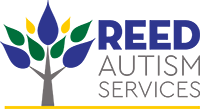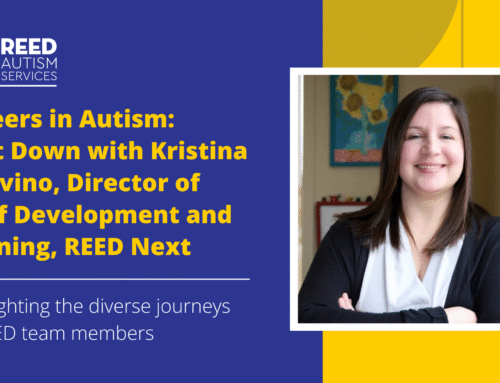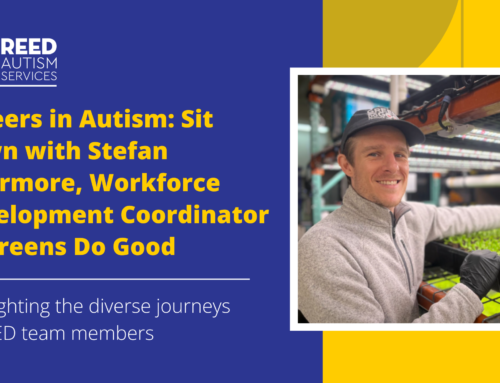This article was originally published on NorthJersey.com on April 19, 2021.
The small, 3,000-square-foot warehouse at the end of Oak Street in Hackensack is filled with big ideas.
It houses Greens Do Good, a vertical hydroponic farm where greens such as kale, basil and cilantro are planted, cared for and harvested by adults on the autism spectrum.
“We are growing really healthy fresh produce in a much more sustainable and environmentally friendly way,” said Director of Operations Jennifer Faust.
The program was developed out of REED Next, which offers therapy to adults with autism.
“We use less water, less energy; we have a smaller carbon footprint and we are trying to educate the community on the importance of eating local and knowing where your food comes from. That is one of the things we are doing. The second thing is that we are employing, supporting and training adults with autism,” Faust said.
The vertical farm serves as training that can lead to employment opportunities for people who often don’t have many options after they “age out” of education programs at 21, said the REED staff.
Ridgewood’s Peter Ban and his wife, Jennie Ban, agree. They worried about the day their son Finnigan, who is autistic, would “graduate to the couch,” Peter Ban said.
Finnigan is smart. He understands everything that is said, but has “a hard time speaking, so he has a hard time communicating with people,” said Jennie Ban. “When you ask him a question, it takes him a very long time to answer.”
The parents worried that the long sentences that come from Finnigan’s mouth, and tend to confuse some, would stop him from making his way in the world.
“At 20 years old he sees the other kids going off to college and getting jobs, and he wants to do that. Schools have great programs, but then what? The employment level of people with special needs is exceptionally low. That is hard on parents,” Peter Ban said.
Disability advocates call it “falling off a cliff” when the money tied to special education ends with the responsibilities of local school districts once a student turns 21.
“But they are just as impaired at 21 as they were at 20,” Faust said. “More than half of 25-year-olds with autism have never held a paying job.”
When compared with other disabilities, “young adults with autism had the lowest rate of employment,” stated a report by Drexel University’s A.J. Drexel Autism Institute.
“REED Academy was founded in 2003 by parents who could not find appropriate education for their toddlers,” Faust said. “Fast-forward to 2016 and that same group of parents realized that their now-young-adult children were about to age out and came to us and said, ‘What do we do next?’ That’s when we created REED Next. We felt a real obligation to these parents to continue the life skills, safety skills and vocational training that we had provided to them up until they were 21,” she said.
“Addressing the Needs of Adolescents and Adults with Autism: A Crisis on the Horizon,” a paper by Peter Gerhardt and Ilene Lainer, put it this way: The need for employment and day programs “far” exceeds the available resources, “leaving a generation of individuals with autism and their families in programmatic, financial, and personal limbo.”
Greens Do Good was founded in 2019.
The repetition farming requires works well with applied behavior analysis, or ABA, therapy, which is used at all REED programs, including Greens Do Good. The farm manager is also trained in ABA therapy.
From planting to harvesting, tasks are broken down into smaller steps and found on checklists throughout the warehouse. Finnigan is thriving, his parents said.
“We call him Farmer Finn. It gives him a sense of pride and hope that these kids don’t always get,” Peter Ban said.
Finnigan has a new purpose. He’s found a side of himself no one knew he had. It might even lead to a career.
The program is open to REED Academy students and special needs students at Ridgewood High School. Plans to open up opportunities to other high schools are in the works as well, Faust said.
Social distancing required by the pandemic has kept the program small to this point. It currently employs five Ridgewood High School students and three adults with autism. More students will be coming from REED Academy in May.
Still, a lot is happening at the site. From scallions to wasabi, greens are available for home delivery and wholesale. Greens Do Good has also joined forces with the Bergen County Food Security Task Force to donate fresh food to local food pantries monthly.
Peter Ban remembered what it felt like to see his son working in the warehouse.
“I went to see him after he had been there for a while, so he had learned certain skills and the sense of pride that he had showing me what he could do, and that that could be his job,” he said. “I think they could take these processes that they have developed and expand them into a larger footprint. If a regional or national grocery store chain said, ‘Hey, we want to acquire scallions,’ these guys could do that. Think of all the jobs they could create.”
There are about 127,000 state residents with autism, said Suzanne Buchanan, executive director of Autism New Jersey.
One in 54 children in the United States, or 1.85%, was identified with autism spectrum disorder in 2016, according to the Centers for Disease Control and Prevention. New Jersey has the highest rate of autism in the nation, with 1 in 32 children, or 3.1%, CDC reports show. New Jersey’s prevalence continues to exceed and outpace other states.
Gene Myers is a local reporter for NorthJersey.com.






